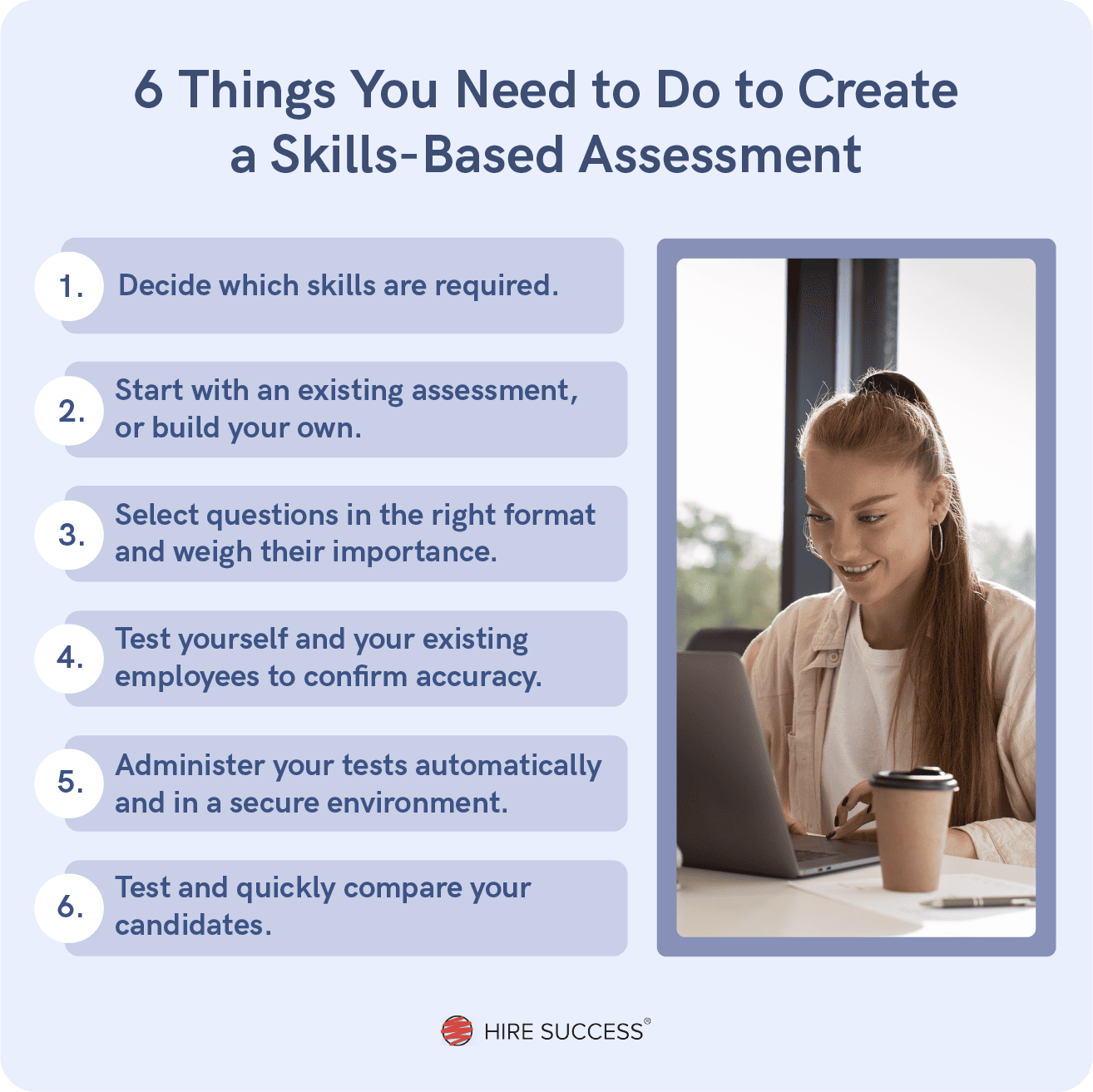Companies are taking a closer look at the skills they need employees to have, and how to best assess those skills. Having a degree or certification in a certain area is not an accurate indicator of candidate capability. This new awareness has led to what Harvard Business Review calls a “reset in hiring practices.”
Employers are increasingly adopting skills-based hiring processes that help them better identify the candidates most likely to succeed in the job. Knowing how to create a skills-based assessment will help you build a strong team, even in a competitive job market.
Why are skills assessments growing in popularity?
The traditional approach of seeking candidates with specific degrees is beginning to fade. Not all college degrees are of equal quality and many companies require skills that aren't taught in traditional degree programs.
To find the qualities they seek, companies are turning to skills assessments. In fact, over 55% of employers are now using pre-employment assessments to measure candidate knowledge, skills, and abilities, according to the Society for Human Resource Management. The skills assessment industry is projected to be worth $7.4 billion by 2032.
What is skills-based hiring?
Employers use skills-based hiring to find qualified job candidates with competencies specific to a role, whether or not they have a college degree. Skills-based hiring involves assessing practical skills, broad topical knowledge, professional abilities, and “soft skills,” such as having leadership qualities, being a team player, knowing how to focus, and exhibiting empathy.
Companies often know what abilities they need for a role and team. They require a reliable way to compare candidates from different educational backgrounds in order to fairly and accurately gauge candidate fit. The need to accurately measure, compare, and gauge candidates is driving a skills-based assessment trend across most industries. It's also causing more employers to think seriously about how to create a skills-based assessment program.
The benefits of a skills-first approach to hiring
As you think about how to create a skills-based assessment program for your company, it helps to understand the benefits of skills-based hiring in your particular field and situation.
- Improve the quality of your hires. Measuring the actual skills of each candidate is a more accurate way to assess their abilities and fit with the company culture.
- Reduce bias and increase transparency. Skills-based hiring provides a clear and impartial assessment of every candidate.
- Expand your applicant pool. You may find that previously overlooked candidates don't have the official credentials you seek, but perform well on these assessments.
- Find people who fit your exact needs. You can customize the qualifications you need to measure with each skills-based assessment.
- Make fair comparisons. A skills-based assessment approach makes it easier to compare all candidates fairly and without unconscious bias.
- Increase diversity and inclusivity. Skills-based hiring makes it possible to find the best talent from all backgrounds, bringing more perspectives into your company.
- Saves time and money. When you know how to create a skills-based assessment program, you'll be able to more quickly sort through candidates and have better employee retention.
Say goodbye to guesswork, hire with confidence
Try our platform for free and get unbiased, data-driven insights into candidates' personal qualities and abilities.
Book a Demo Try It FreeHow to create an effective skills assessment

Reaping the benefits of skills-based hiring requires building an effective skills-based assessment program. The following basic steps will guide your creation and deployment of these assessments.
1. Decide which skills are required
Make a list of the skills a candidate will need in order to excel on the job. You may wish to establish this baseline by administering tests to current employees. Be sure to consider “hard” and “soft” skills, as well as general knowledge helpful for both your industry and company. The depth of testing will depend on the seniority and specialization needed for a job—in many cases, a basic academic test of math and language skills may be adequate.
2. Start with an existing assessment, or build your own
Working with a specialist in creating skills-based assessments can save you time and money, while yielding better results. Use or customize an existing skills assessment, like an accounting skills assessment or a Microsoft Excel test, or work with a provider to create your own assessment from scratch, tailored to your job needs. Using our custom test builder makes creating your own skills assessment much easier and ensures it's compliant with any applicable regulations.
3. Select questions in the right format and weigh their importance
Asking the right questions in the right way is itself a skill. You don't want to lead the respondent and you don't want to confuse them. Should you use multiple choice math questions, or open-ended narrative ones? The order and format of your skills assessment makes the difference between useful results and useless data.
The value of a good job assessment builder is that it simplifies creating your own questions by offering a selection from a wide database of pre-built, proven ones. Modern builders include the ability to add images, videos, and audio files in your assessments, as well.
4. Test yourself and your existing employees to confirm accuracy
Before using a skills-based assessment on candidates, test it on yourself and several employees to ensure it works as expected and yields the insights you need. If it's too difficult or too long, you want to know in advance so you can make adjustments.
5. Administer your tests automatically and in a secure environment
Automating the administration of your skills assessments is better for you and for job candidates. The tests are available on any device, so they can be taken at the convenience of the candidate. On the side of employers, automation saves time and effort. Just make sure that the tests are provided on a secure system, both to comply with laws and to protect the privacy of applicants.
6. Test and quickly compare your candidates
Select a pre-employment testing system that makes scoring tests straightforward and gives you results that are easy to compare. A well-administered pre-employment test makes comparing candidates more like comparing apples with apples. Your top candidates will stand out and you'll be able to easily see their relative strengths and weaknesses.
Be transparent about the use of skills testing
It's important to let candidates know that they will be tested, and to provide specifics about the skills test, so they are able to prepare and perform at their best. This ensures that your skills-based hiring is fair and complies with equal opportunity employment and other regulations.


